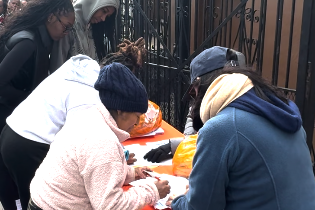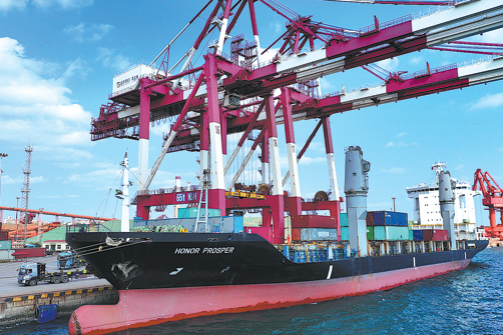US stocks rise on optimism for economic rebound

US stocks rose on Wednesday, boosted by continued optimism about an economic rebound following the COVID-19-induced downturn and the possibility of another round of stimulus spending.
Different states are re-opening at different paces. Anecdotal evidence suggests airline travel, hotel bookings and restaurant reservations are increasing. But commerce remains well below pre-pandemic spending.
Senate Majority Leader Mitch McConnell, a Kentucky Republican, said that Congress "probably" will need to pass another stimulus bill to mitigate the economic carnage caused by the coronavirus pandemic.
"So, in the next few weeks, we'll determine whether there is yet another bill," he said.
But he told reporters in his home state on Tuesday that the bill is likely to be narrower than the $3 trillion package approved by House Democrats.
"We need to make sure we have unemployment insurance properly funded for as long as we need," McConnell said.
About 36 million people have lost their jobs due to the economic shutdown intended to curb the spread of the virus. In April, the unemployment rate hit 14.7 percent. As recently as February, US unemployment was at record low.
The White House has indicated its support for another stimulus package and President Donald Trump said it might include a second round of direct payments to individuals. McConnell didn't mention such payments.
Congress has passed four bills in response to the economic downturn. The Federal Reserve has cut interest rates and pumped money into the system to boost the economy.
Federal Reserve Chairman Jerome Powell has said the government should take additional steps to boost the economy.
In early trading Wednesday, the Dow Jones Industrial Average rose 344.13 points, or 1.37 percent, to 25,339.24. The S&P 500 gained 0.77 percent. The Nasdaq Composite backed off its positive opening and slid 0.20 percent.
On Tuesday, the Dow rose 529.95 points, or 2.17 percent, and closed at 24,995.11. The S&P 500 gained 1.23 percent. The Nasdaq Composite edged up 0.17 percent.
The 30-stock Dow on Tuesday briefly traded above 25,000, a level not seen since early March. The S&P 500 briefly crossed 3,000 for the first time since March.
Trading above these levels could signal a long-term market revival, some Wall Street analysts believe.
On Wednesday, West Texas Intermediate crude, the gauge for US prices, dipped 2.21 percent to $33.58 a barrel after the Russian government said it may rescind plans for extended production cuts. US oil prices had risen for seven of the last eight trading sessions.
US oil futures briefly turned negative during the worst of the coronavirus shutdown as demand collapsed and supply exceeded storage capacity. In general, the price of oil is an indicator of future economic activity. Rising prices suggest traders believe the economy will rebound, increasing demand for fuel.
Brent crude, the worldwide benchmark, slid 2.04 percent to $35.99 a barrel.
Meanwhile, the International Energy Agency (IEA), a Paris-based intergovernmental research and policy organization, said the coronavirus pandemic has led to a sharp decline in worldwide energy investment that's "staggering in both its scale and swiftness".
The decline in investment could create "serious" problems for energy security and the transition to clean energy, the IEA warned.
"It means lost jobs and economic opportunities today, as well as lost energy supply that we might well need tomorrow once the economy recovers," Faith Birol, executive director of IEA, said in a statement.
"The slowdown in spending on key clean energy technologies also risks undermining the much-needed transition to more resilient and sustainable energy systems."
Prior to the economic shutdown in response to the pandemic, the IEA said global investment was set to grow by about 2 percent, or the largest increase in spending in six years.
Spending now is likely to decline by 20 percent, or about $400 billion, compared with a year ago. That means thousands of lost jobs was well as lower tax revenue and royalty payments for governments worldwide.
The shutdown has benefited Papa John's because millions of people have been forced to stay home and order out for food.
The pizza chain said estimated same-store sales, or sales at stores open more than one year, increased 33.5 percent this month in North America and 7 percent globally. In April, the company said estimated same-store sales grew 26.9 percent in North America and 1.4 percent globally.
"We entered the pandemic with strong growth and momentum, and are fortunate that our delivery and carry-out model has enabled us to meet an essential need for high-quality food, safely delivered to consumers' homes," CEO Rob Lynch said in a statement.
In early trading Wednesday, Papa John's stock fell 1.62 percent to $73.14 a share.

































